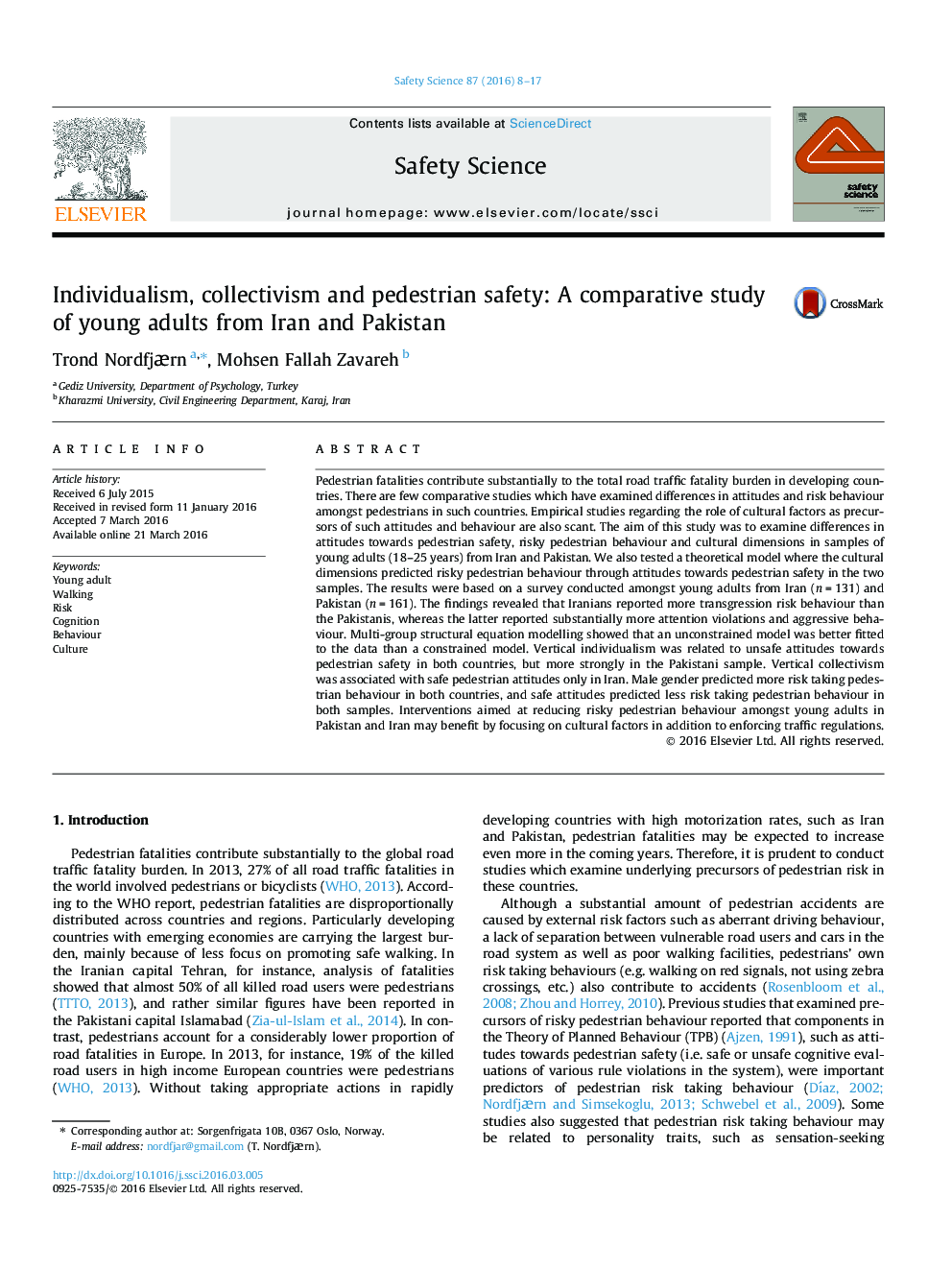| Article ID | Journal | Published Year | Pages | File Type |
|---|---|---|---|---|
| 588936 | Safety Science | 2016 | 10 Pages |
•Attitudes and culture related to pedestrian risk behaviour in two countries.•Young adults in Pakistan reported more attention and aggression violations.•Perceiving the self as unique and competitive was related to more risk taking.•Perceiving an interrelated and conform self was related to safe behaviour in Iran.•Cultural factors should be incorporated in pedestrian safety work.
Pedestrian fatalities contribute substantially to the total road traffic fatality burden in developing countries. There are few comparative studies which have examined differences in attitudes and risk behaviour amongst pedestrians in such countries. Empirical studies regarding the role of cultural factors as precursors of such attitudes and behaviour are also scant. The aim of this study was to examine differences in attitudes towards pedestrian safety, risky pedestrian behaviour and cultural dimensions in samples of young adults (18–25 years) from Iran and Pakistan. We also tested a theoretical model where the cultural dimensions predicted risky pedestrian behaviour through attitudes towards pedestrian safety in the two samples. The results were based on a survey conducted amongst young adults from Iran (n = 131) and Pakistan (n = 161). The findings revealed that Iranians reported more transgression risk behaviour than the Pakistanis, whereas the latter reported substantially more attention violations and aggressive behaviour. Multi-group structural equation modelling showed that an unconstrained model was better fitted to the data than a constrained model. Vertical individualism was related to unsafe attitudes towards pedestrian safety in both countries, but more strongly in the Pakistani sample. Vertical collectivism was associated with safe pedestrian attitudes only in Iran. Male gender predicted more risk taking pedestrian behaviour in both countries, and safe attitudes predicted less risk taking pedestrian behaviour in both samples. Interventions aimed at reducing risky pedestrian behaviour amongst young adults in Pakistan and Iran may benefit by focusing on cultural factors in addition to enforcing traffic regulations.
